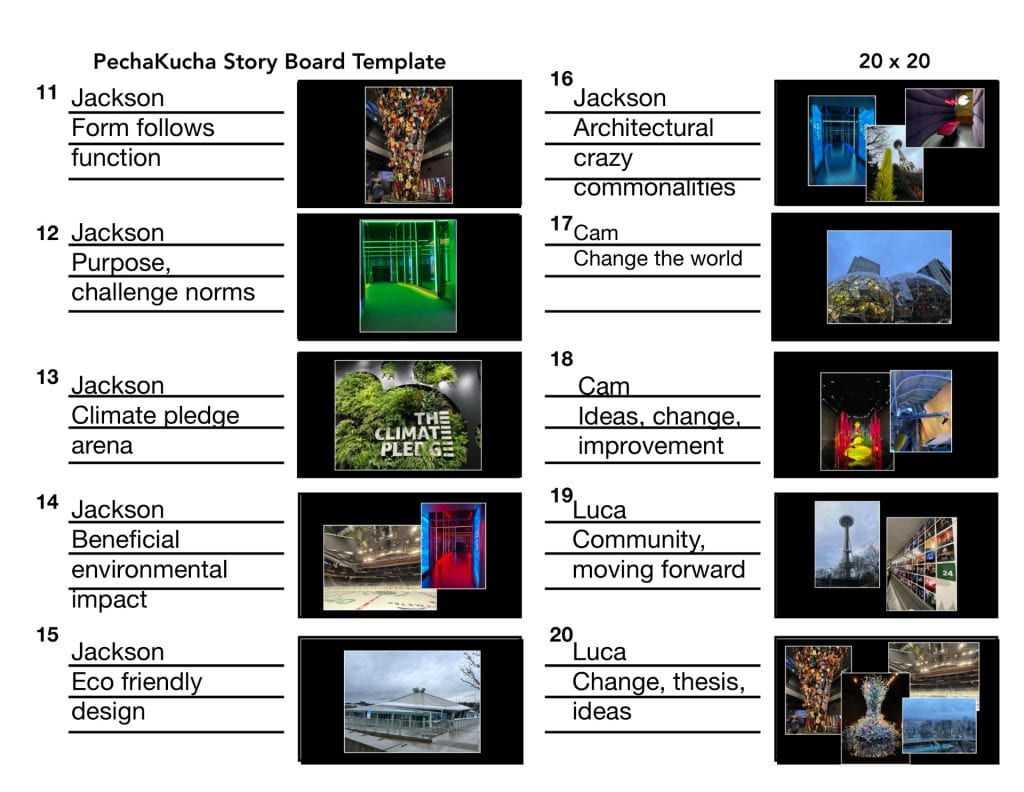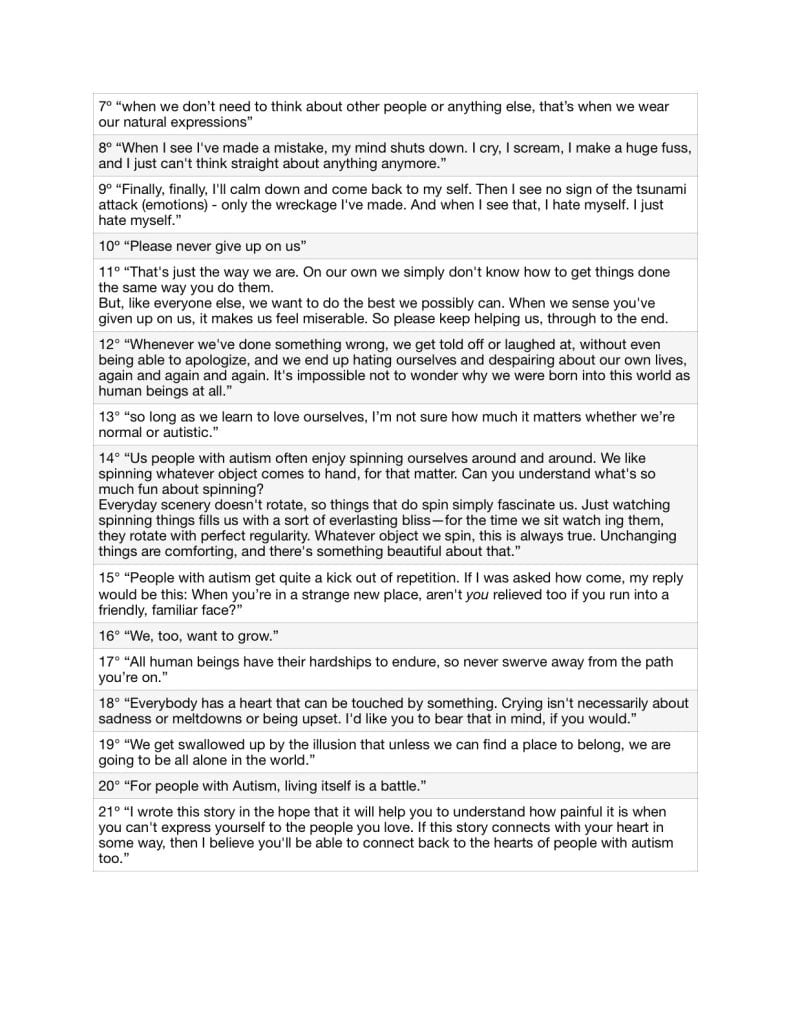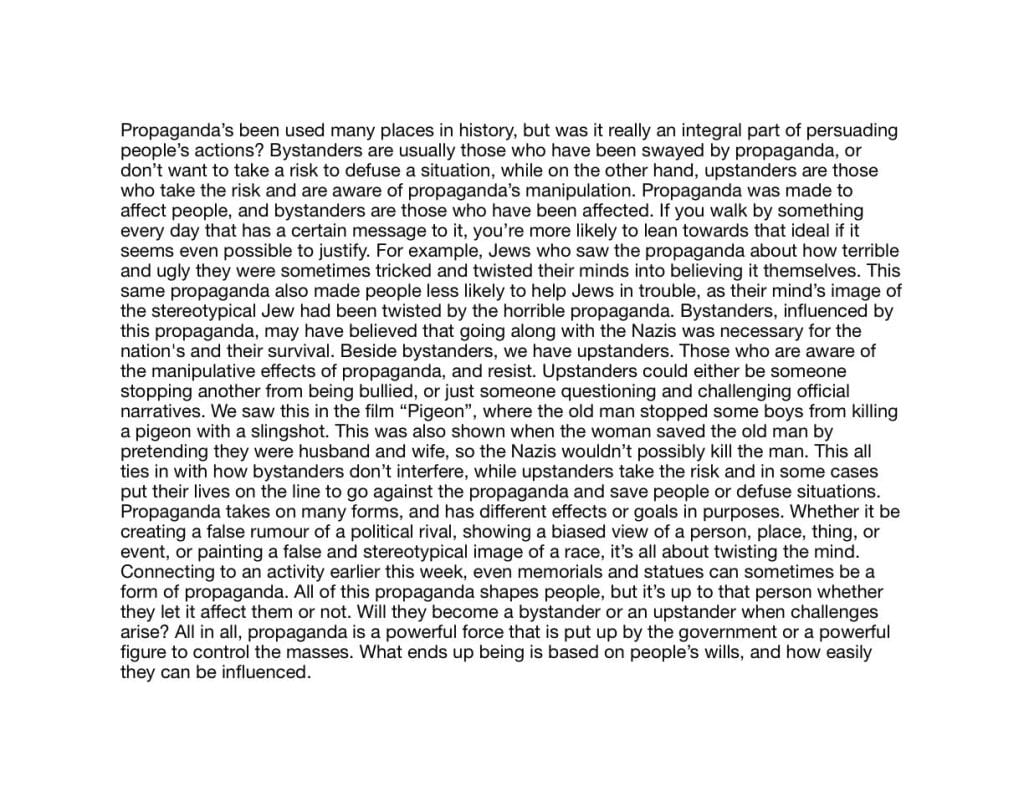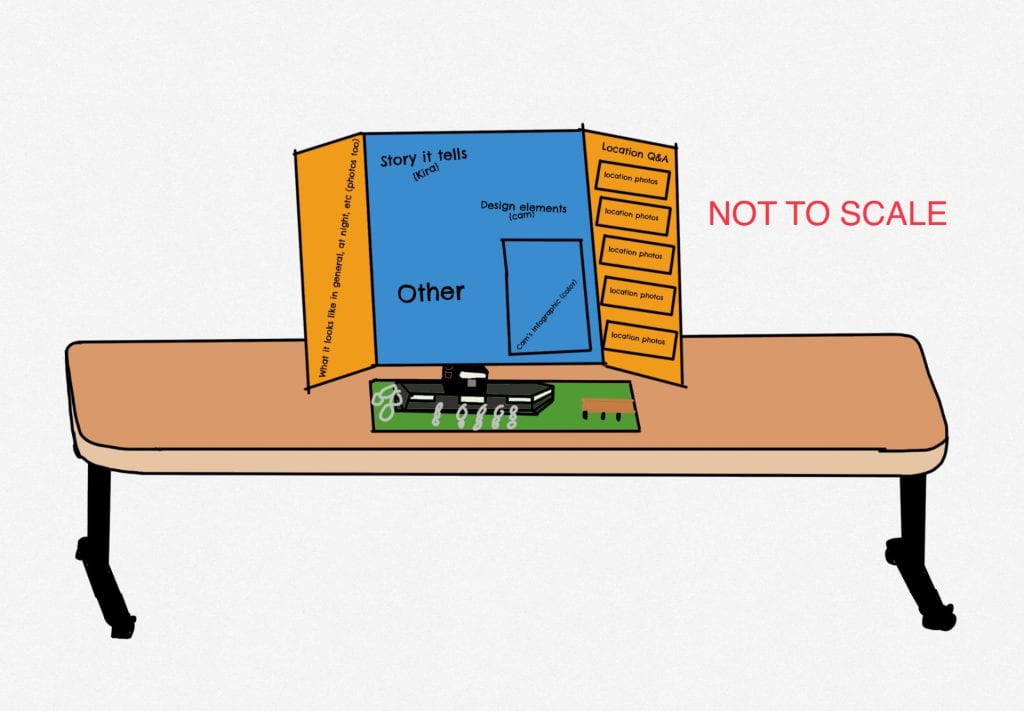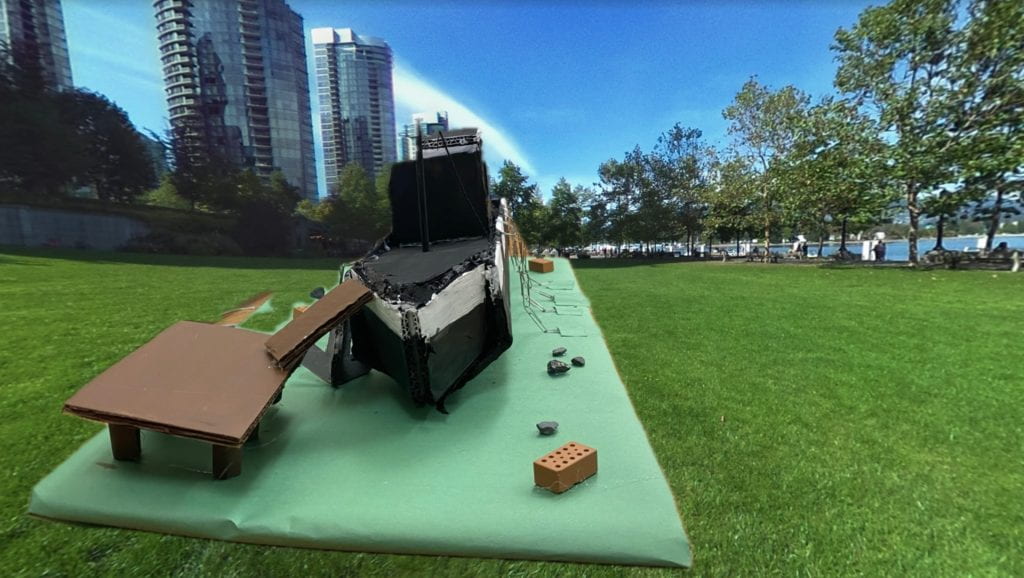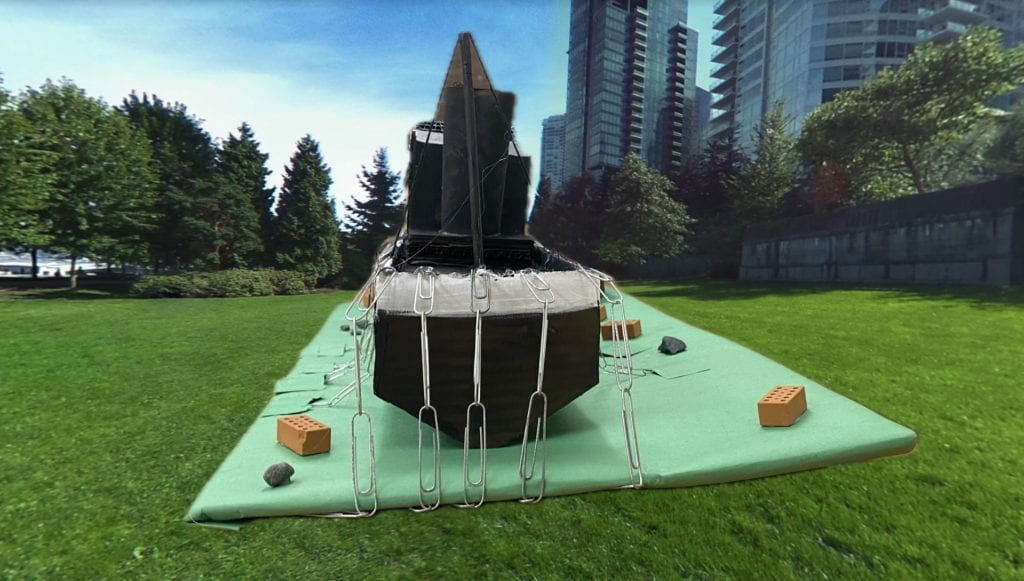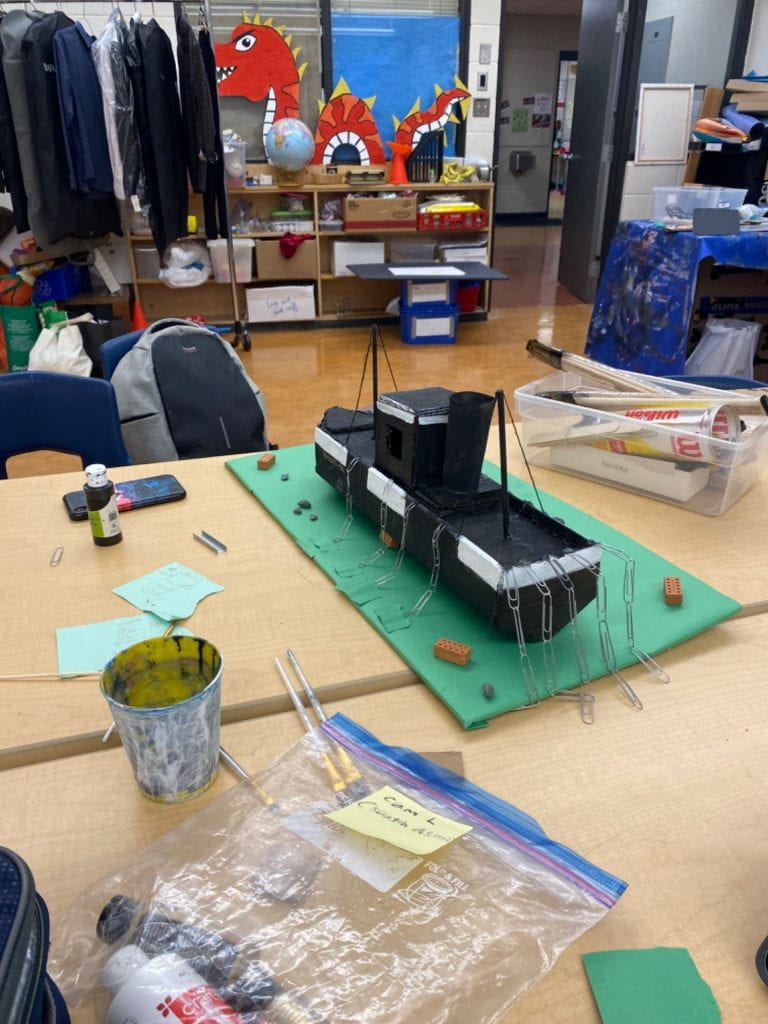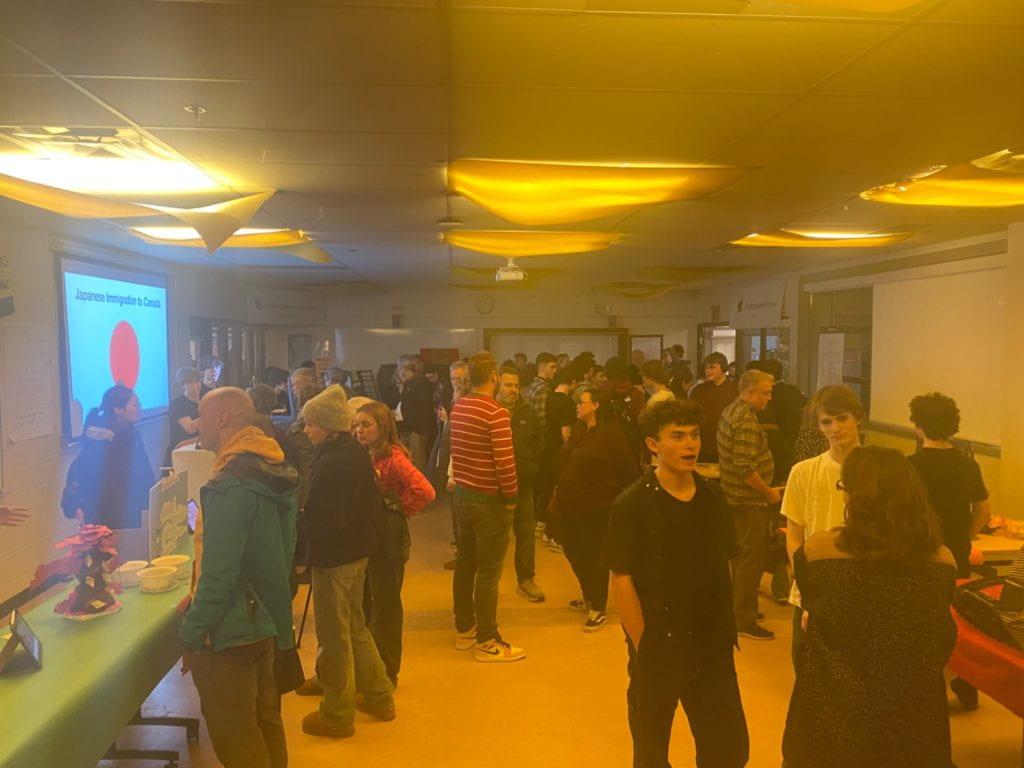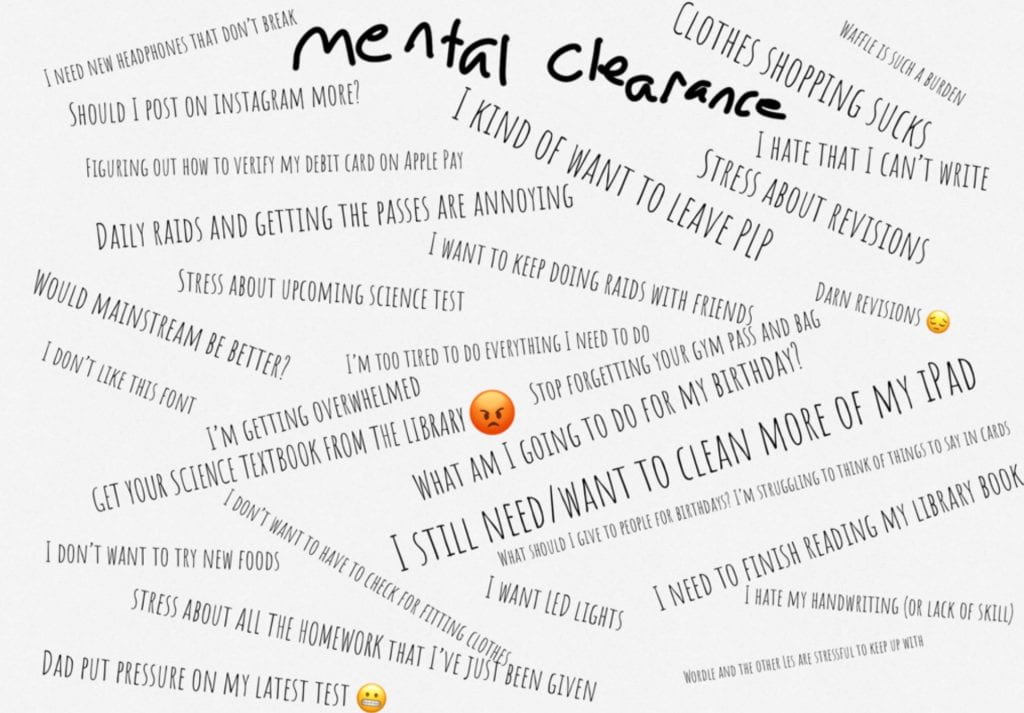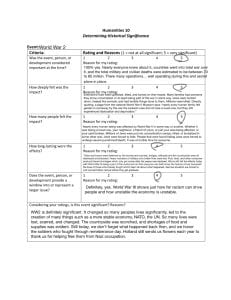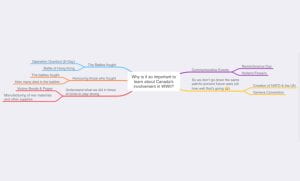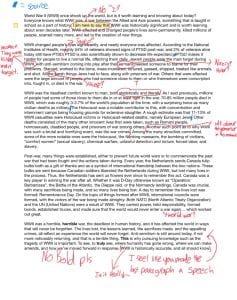“Thank you for coming to my presentation of learning. I am the expert on my own learning. I am also responsible and accountable for my own learning. You can expect me to give an honest evaluation of my progress. We will discuss my strengths and opportunities for growth. Thank you in advance for listening and for offering feedback that I can use to improve as a learner.”
This year is my third year in PLP, and the last year before it becomes the closing grades of high school. Throughout the semesters and four different blocks of PLP classes, I’ve had many opportunities to experiment and evolve as a learner, and using these opportunities has gotten me where I am today. From collaborating with groups and compromising, working through struggles, overcoming obstacles, learning new skills and building on old ones, to coming 1st at the Destination Imagination regional tournament, this school year has changed me as a person and as a learner (for the better).
I will now share with you how I’ve grown as a learner and examples of what makes me ready for the transition to grade 11.
Evidence of My Progress as a Learner
To the PLP teachers reading this, you already know about the new grading system in Showbie, but for anyone who’s reading this besides them, here’s a brief overview.
I used to showcase my outstanding marks at the start of each tPol section for each subject, but PLP recently did a rework of the grading system. While it used to be ☁️⛅️☀️🌈, it went under a few changes such as a simple 🤿🧗♂️🚂 as well as a ✅, before eventually transitioning to a 👻🔁🧗♂️👌⌛️, which is where we’re at now. Therefore, I will just be highlighting assignments that I’m proud of and think really showed effort.
Maker:

Seeing as there were only two Maker projects this year, and one of them was more of a program, Maker was quite straightforward this year. Despite having only two projects under its name, Maker was my favourite class this year, specifically the “Peas in a Pod(cast)!” project. Having the ability to do a podcast on whatever I choose was a great experience that let me explain a special interest of mine.
Proud of:

Episode 1 (Part 1) “The Name of the Game”
Episode 1 (Part 2) “The Name of the Game”
Episode 3 “An Eventful Evening”
Episode 4 (Bonus Episode) “Bloopers? Bloopers!”
The podcast project as a whole was just so fun and interesting to do. I was able to freely choose a topic to talk about and settled on Pokémon GO, which I’m very passionate about. I feel that I went above and beyond in making extra episodes just for the fun of it, as well as putting lots of effort into the podcast cover art. I personally struggle with drawing and being satisfied with them, but I was very proud of how it turned out. Writing and drawing with Dysgraphia can be difficult, but I’ve developed ways to overcome and work around this disability. A strategy/tool I obtained to help with this is a special pencil grip that makes it more comfortable and easier to use. Along with the art, I also really enjoyed recording and editing the audio clips for the podcast episodes. It gave me a chance to further my technology skills and also introduced me to the world of podcasts. I learned that recording podcasts can be difficult, but asking for help when confused and trying again can lead to better results. With recording, it’s all about patience and perseverance, trial and error. So is life.

Destination Imagination. Three years at Seycove, two of them in the DI program. What a journey.
My time spent in DI over the past 3 years has been some of the most unique experiences of my life. I have gained and grown many essential skills in the process of creation and performance. When we were first introduced to it in Grade 8, I knew this was going to be something I would remember for the rest of my life when I look back on high school, and I was right. Destination Imagination helped me work on my collaboration with teammates as well as organization, time-allocation, and brainstorming. I also made sure to take charge during the process when the rest of my group was feeling unmotivated to make sure we stayed on our feet and productive. One could say I was trying to set an example.
Peace be with all the uncredited volunteers from the tournaments.
PGP:

Somewhat new to PLP this year or at least to me, PGP (also known as the Personal Growth Plan) is basically PLP-atized Careers. Both projects helped us look more at ourselves both inside the classroom and outside of it. We also delved more into our futures and goal setting. Two different projects, sandwiching the rest of the year. All about who we are and who we want to be, PGP really gets us thinking and is a truly spectacular opportunity to be gifted with.
Proud of:


Coming from the first of two PLP projects, the Personal Productivity System (PPS) Backlog Clearance was a great chance for us to both clear our mind, room and devices, AND actually doing schoolwork at the same time. I really enjoyed getting the chance to do this as my device personally was quite cluttered at the time (it still is). This assignment gave me the chance to organize myself so that I can be more productive and find things quicker, while also having the benefit of being nice to look at. I may or may not have hyper-fixated on it for too long, neglecting other parts of my academics for the time I was making progress with it. However, when I was finished it felt amazing to look at all the progress I made and how much of a difference between the two there was.
The PLP Spring exhibition! I think this is the first time I’ve mentioned one in a tPol post, but boy is it worth it. Sprouting from the second Careers project which closed off the year exquisitely, the 2024 PLP Spring Exhibition was an amazing experience with a variety of different exhibits to see, centred around the theme of a comic-con of sorts. My final exhibit hinged on the question “What is your superpower?” which I answered as me being musically adept. My table focused on my musical accomplishments and the journey I took to get there, from my multitude choir awards to a 10 minute long video showcasing my journey and experiences with choirs and music alike. I really enjoyed the process of getting to that point (even if I was cutting it close time-wise), and I can say that I am extremely satisfied with my final products (the video + a sheet describing my music goals and aspirations as well as experience).
Stay tuned for the Spring Exhibition blog post!
Humanities:

As Humanities is a year-long class, there was many experiences and assignments that I was a part of. With all those different aspects of PLP coming into play, I learned many new skills and techniques for writing, working, using iPads to the full potential, and much more. I had a hard time narrowing down the assignments that I thought best showed who I have become and reflects the success behaviours of PLP learners, but with looking at it through the lens of what I’m proud of and what I put a lot of effort into, I was able to narrow it down to 3. This year, I’ve strived to be the best learner I can be with the opportunities presented to me. My favourite project was without a doubt “Ology of Apology.” Gotta love the nationalism in BC’s curriculum.
Proud of:
As part of the “Who Are You Gonna Be?” project, we got to choose a book to read and make notes on. I felt that I went above and beyond with the effort I put in, as I made multiple different sections for multiple different topics and take aways from the book. This assignment helped me further my writing as I usually struggle with that, along with using deeper and reflective thinking while reading. I used to do this back in “Battle of the Books” in elementary school as well, where we were expected to be extremely reflective and I held that standard.

This final product of an assignment was a struggle I overcame. If I haven’t already mentioned, I usually struggle with writing and getting my thoughts onto a page (which makes this tPol post all the harder). During the course of the project that this assignment originated from, there was a lot of writing involved, but I persevered, asked for help, and demonstrated growth as a learner. I used some strategies I’d picked up along the way to help me get words onto the page.

Choir is a major passion for me, and nothing gets me more interested than hearing and learning others’ musical stories. Carrie Tennant is the conductor of the Vancouver Youth Choir (VYC for short). Just like mentioned in my last post (see above), I struggle with writing, but I find that I’m way more motivated to write and generally interact (be productive) when the topic is centred around an interest of mine. I’ve learned this after years of going through the school system.
Stretches and My Strategies to Deal with Them

Driving Question
How can you showcase evidence to demonstrate that PLP Success Behaviours have prepared you to advance to the next grade?














